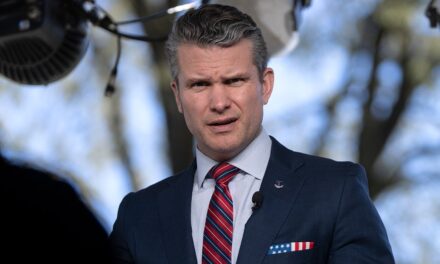In recent political discourse, Democrats have faced accusations of employing violent rhetoric towards former President Donald Trump. Critics argue that such language has escalated tensions and fostered a hostile atmosphere in an already polarized political landscape.
One particularly concerning instance occurred when a high-profile Democratic figure remarked, “It’s time to put Trump in a bullseye.” This statement has been highlighted by critics as an example of dangerous rhetoric that could incite real-world violence. The comment drew significant backlash from supporters of the former president, who argue that this kind of language is both irresponsible and inflammatory.
Supporters of Trump have been quick to point out that advocating for violence, even metaphorically, against a political figure goes against the principles of a democratic society. They believe that such rhetoric undermines the potential for constructive dialogue and exacerbates the existing divide between political factions.
Moreover, the increasing use of violent language in politics raises concerns about its impact on public discourse. Political analysts warn that normalizing such rhetoric can desensitize the public to threats and potentially encourage extreme actions from individuals who might take these statements literally.
Defenders of the Democratic figures involved argue that the references to “putting Trump in a bullseye” and other similar statements are not meant to be taken literally. Instead, they claim these remarks are expressions of frustration and a desire to hold the former president accountable for his actions while in office. They emphasize the importance of distinguishing between metaphorical language and actual calls for violence.
Nevertheless, the controversy underscores the urgent need for responsible communication in politics. As public figures wield significant influence over their supporters, their words carry weight and can have real consequences. Experts suggest that leaders on both sides of the political spectrum should strive for more measured and respectful rhetoric to promote a healthier democratic process.
This issue is not unique to one political party. Both Democrats and Republicans have faced criticism for their use of heated language in recent years. Addressing this broader problem will require a collective effort from all political actors to foster a more civil and constructive environment.
As the nation continues to grapple with deep-seated political divisions, the role of language in shaping public attitudes remains a critical consideration. Moving forward, fostering a culture of respectful dialogue may prove essential in bridging gaps and ensuring a more unified and functional political system.
































